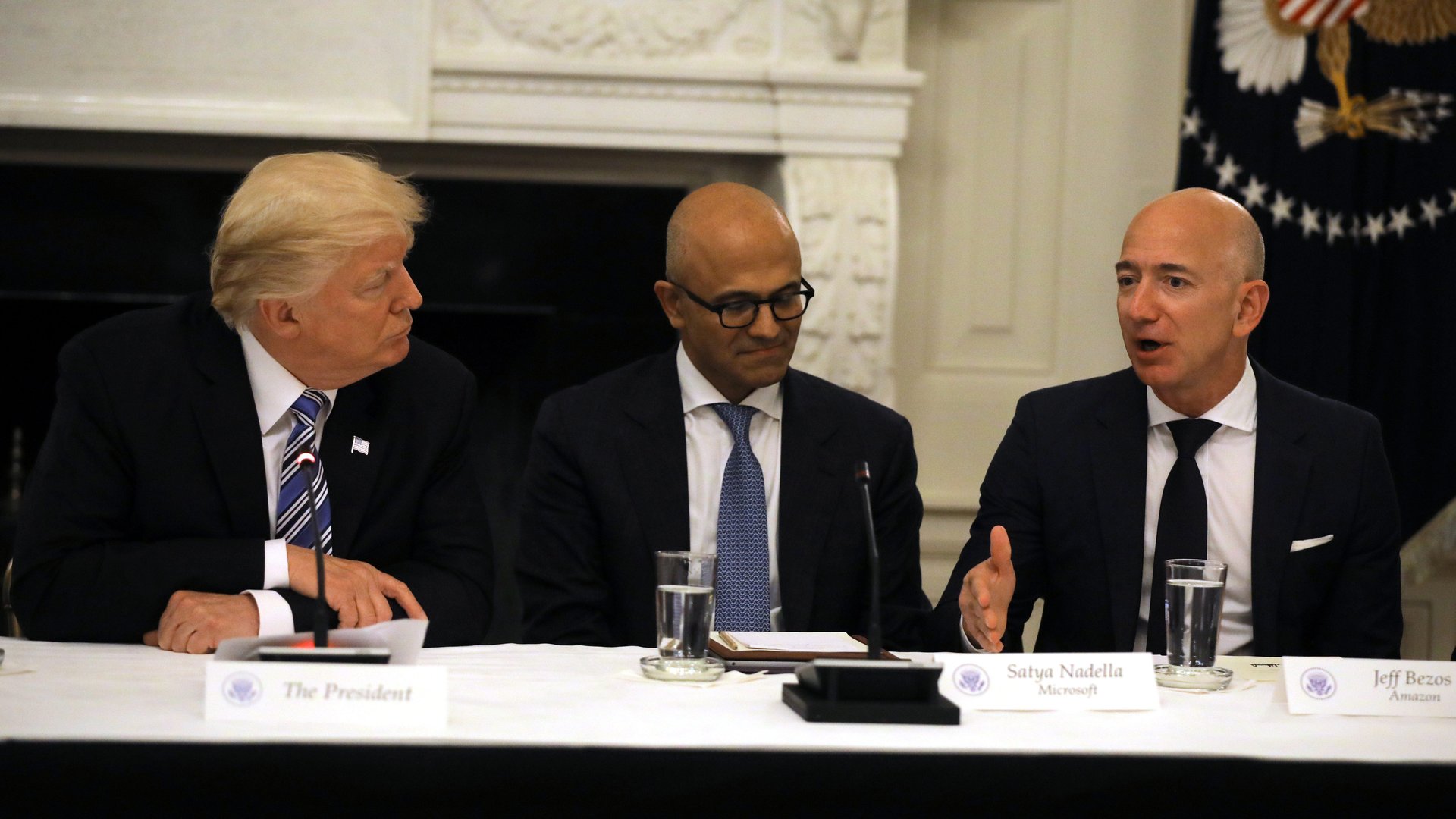Coronavirus forces White House to send Amazon millions in new business
Despite US president Donald Trump’s hostility toward Amazon and its billionaire founder, Jeff Bezos, the White House ordered the Federal Emergency Management Agency (FEMA) to buy up to $12.8 million worth of thermometers from the retail giant as part of its response to the novel coronavirus, according to federal spending documents.


Despite US president Donald Trump’s hostility toward Amazon and its billionaire founder, Jeff Bezos, the White House ordered the Federal Emergency Management Agency (FEMA) to buy up to $12.8 million worth of thermometers from the retail giant as part of its response to the novel coronavirus, according to federal spending documents.
While it’s surprising that the Trump administration would choose Amazon for its purchase, it may not have had much choice.
“There is little question that Trump has sought to punish Amazon out of partisan revenge,” Craig Holman, government affairs lobbyist at progressive DC nonprofit Public Citizen, told Quartz. “At the same time, the resources and skills offered by Amazon clearly cannot be ignored in the midst of this global crisis. The White House has had no option but to do business with Amazon, regardless of how much Trump would prefer not.”

Trump has incorrectly blamed Amazon for such things as “scamming” the US Postal Service, and regularly complains about his coverage in The Washington Post, which Bezos owns. The president also allegedly intervened last year to prevent Amazon from winning a Pentagon contract worth $10 billion.
Yet Amazon is occupying a steadily expanding role as a supplier to the federal government. On Trump’s watch, the government has obligated more federal dollars to Amazon in a little over three years than Trump’s predecessor, Barack Obama, did in eight. In recent weeks, the US Marshals Service has ordered almost $110,000 worth of personal protective equipment, or PPE, from Amazon, which also works with state and local authorities across the country. When the US embassy in La Paz, Bolivia needed new appliances last month, it got them through Amazon.
Nick Schwellenbach, a senior investigator at the nonpartisan Project on Government Oversight, said it’s hard to know if FEMA’s bulk thermometer purchase from Amazon represents a good value, or whether FEMA would have been better off buying from the government-run General Services Administration. But, he told Quartz, it’s possible that getting the thermometers as quickly as possible outweighed any concerns over price.
The deal for the Chinese-made thermometers also invoked Trump’s recent emergency declarations in order to sidestep the usual “buy American” clause such contracts normally include. The next largest federal purchase of thermometers so far in 2020 was a February acquisition by the US Department of Health and Human Services, which included coveralls, for about $350,000, according to US government records.
Jennifer Schaus, a Washington, DC procurement consultant focused on federal contracts, says the thermometers FEMA is buying through Amazon were classified as an “emergency acquisition.” It was a so-called sole-source award, she told Quartz, explaining that this means only one vendor—Amazon—had the capacity to fulfill FEMA’s needs. It appears to be just the third FEMA purchase in available federal contracting history that was explicitly ordered by the White House.
“It’s highly unusual for the White House to be involved in individual procurements,” explained Virginia Canter, chief ethics counsel for the nonprofit watchdog Citizens for Responsibility and Ethics in Washington (CREW). “White House involvement raises questions about whether federal acquisition procedures, including those that apply to urgent circumstances, are being followed to ensure that the public interest is being best served.”
Asked for further details about why Amazon was awarded the contract, the White House referred Quartz to FEMA, which said, “Sourcing requirements for these types of purchase orders depends on available inventory, schedule to provide the requested items, price point determination, and generating the best value outputs for the needed commodity.”
This article has been updated with comment from CREW.